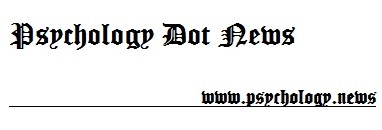Let’s stop using the term psychogenic cough, okay?
Does your throat feel a bit ticklish right now? Are you sure? Maybe you just need to clear it a little?

In the midst of the COVID-19 pandemic, where symptoms include a dry cough, it isn’t uncommon to hear people referring to their “psychogenic cough.” It is actually fun to see how such a relatively esoteric term can actually be prevalent in the general population. It is also perfectly natural, with anxiety running high, to get a bit nervous about that throat tickle. This fairly understandable experience really isn’t something we’d want to turn in to a diagnosis. We also don’t want to trivialize or make light of the experience of people who might qualify for a diagnosis with unexplained cough. However, in the instances where a diagnosis is necessary, should we even perpetuate the term psychogenic cough? Hint: the answer is no.
The use of the term psychogenic is a bit antiquated, but implies that psychological factors are the primary cause of the problem. Sometimes we really don’t know the primary cause of the problem– it is just medically unexplained– but using a term like psychogenic can give the false impression that we’re more certain than we are that it is “all-in-your-head.” We also simply can’t default to reasoning like “we don’t know therefore it is psychological.” There have been multiple suggestions for replacing the term psychogenic cough with other terms which may fit the situation better. Let’s go ahead and pay attention to those advances in terminology.
For example, there is a good discussion of this in the 2017 article Somatic cough syndrome or psychogenic cough—what is the difference? It also includes a table with “Recommendations from the American College of Chest Physicians Cough guideline on psychogenic cough.” Among other things, they “suggest against using the diagnostic terms habit cough and psychogenic cough.” The recommendation was to replace them with tic cough and somatic cough syndrome (the latter “to be consistent with the DSM-5 classification of diseases”). The article author (Vertigan, 2017) also notes “the concept of somatic cough syndrome as a unique entity may be incongruent with later developing concepts in cough such as idiopathic cough (19,20), unexplained cough (7), cough hypersensitivity syndrome (21,22) and laryngeal hypersensitivity (23,24). These concepts are also used to explain cough without obvious etiology, or that persists despite medical treatment. It is possible that, before these later concepts in chronic cough were developed, some patients with unexplained chronic cough or cough hypersensitivity syndrome would have been labelled as having psychogenic cough. The distinction between somatic cough syndrome (psychogenic cough) and other phenotypes of chronic cough is not entirely clear. For example, underling psychological issues may be contributing factors in the pathogenesis of chronic cough in some individuals, and yet unexplained cough can exist without psychomorbidity.” Psychomorbidity is present in patients with chronic cough with a variety of etiologies, and tends to decrease following successful treatment. Psychogenic cough may have been used in the past as a way to explain refractory cough. Now, with more research, we might wonder whether there are better ways to describe and deal with refractory cough such as cough hypersensitivity syndrome. It might be more effective to consider psychological issues as a trigger or exacerbating factor in cough until further research is conducted to accurately identify the phenotype of somatic cough syndrome. Vertigan concludes that “psychomorbidity is present in patients with chronic cough with a variety of etiologies, and tends to decrease following successful treatment. Psychogenic cough may have been used in the past as a way to explain refractory cough. Now, with more research, we might wonder whether there are better ways to describe and deal with refractory cough such as cough hypersensitivity syndrome. It might be more effective to consider psychological issues as a trigger or exacerbating factor in cough until further research is conducted to accurately identify the phenotype of somatic cough syndrome.”
Here is a nice quick summary of recommendations related to Somatic Cough Syndrome and Tic Cough. Your key takeaways from this blog post are that psychogenic cough isn’t a term to be tossed around lightly– and– even more to the point it isn’t even a term we should be using anymore. I hope everyone is staying safe and this post finds you well.
Thanks,
Todd
P.S. Remember, you can subscribe to get new blog posts delivered to your in your email.
